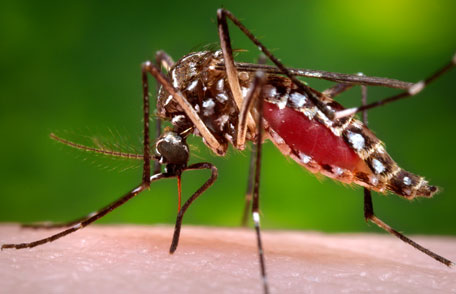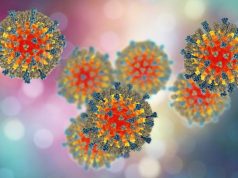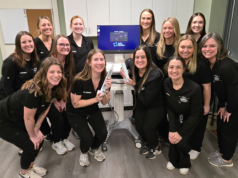
CHILLICOTHE — Health officials have confirmed the first human case of La Crosse virus in Ross County this year.
The Ross County Health District (RCHD) announced the case this week, noting that the virus is transmitted to humans through the bite of an infected mosquito. While most people show no symptoms, children under 16 are more likely to develop severe illness, according to RCHD Public Health Nursing Director Morgan Kelley. The virus cannot spread from person to person.
The Eastern Treehole mosquito, which often breeds in tree cavities and water-filled containers such as old tires, is the primary carrier of La Crosse virus, said Kelly Spindler, RCHD Director of Environmental Health. She emphasized the importance of reducing breeding sites to limit mosquito-borne diseases.
La Crosse virus is endemic in Ohio, and Ohio has reported more human cases than any other state in the United States, averaging about 20 cases per year.
Many people infected with La Crosse virus have no apparent symptoms. For those who do, symptoms typically begin five to 15 days after a mosquito bite and include non-specific symptoms such as:
- Fever.
- Headache.
- Nausea.
- Vomiting.
- Lethargy.
Severe disease most often occurs among children less than 16 years old and is characterized by:
- Seizures.
- Coma.
- Paralysis.
- A variety of neurologic complications after recovery.
Death from infection with La Crosse virus is rare and occurs in less than 1% of cases.
To support that effort, RCHD will host its annual Tire Drive and Flu Shot Clinic on Saturday, October 11, from 8 a.m. to noon at the Ross County Fairgrounds. Ross County residents may bring up to 10 rimless car tires per vehicle for free disposal. The event is funded through a Community Cleanup Grant from Ross County Litter Control & Solid Waste District.
“Simple prevention steps can make a big difference,” Spindler said. She recommended the “Dress, Dump, and Defend” model:
- Dress in long pants and sleeves to limit exposed skin.
- Dump standing water weekly to reduce breeding grounds.
- Defend yourself with EPA-approved insect repellents such as DEET, Picaridin, oil of lemon eucalyptus, or IR3535.
Flu shots will also be available during the event. Residents are asked to bring their ID and insurance card. For more details, contact the Environmental Health office at 740-775-1158 or Public Health Nursing at 740-775-1146.











